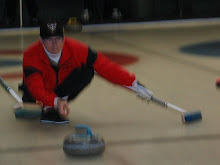One of the things we skeptics harp on a lot is the double blind test.
A blind test is one in which the subjects being tested have no knowledge of the preferred outcome, or even of the range of possible outcomes of the test they are undertaking. This is important because studies have shown that subjects tend to try and respond to tests in the way they perceive the tester wants them to. If subjects have foreknowledge of what a study is all about, the results can easily be artificially skewed.
A double blind test is one in which the person administering the test does not know the preferred outcome either. For example, in a medical drug trial, the physician dispensing the medication, or the practitioner administering the dose, do not know whether their patient is receiving the actual medication, or a placebo. You see, studies have also shown that the testers can - often subconsciously - communicate the desired outcome to their subjects. Which, of course, results in the phenomenon described above. The only way to ensure the results of your test are not being affected by subject or experimenter bias is to control for every possible leakage of information.
The first mistake often made by a woo-woo is the belief that they cannot be fooled. I can't remember which one of the woo-woo trifecta - Dean Radin, Rupert Sheldrake or Gary Schwartz - it was who said it, but one of them claimed that double blind experiments were a good thing for young science students, but unnecessary for experienced researchers who had learned how to avoid bias in theirstudies. (That sound you just heard, the soft susurration just on the edge of being audible? That was the sound of tens of thousands of scientists simultaneously shaking their heads in sad resignation.) Any serious scientist will tell you that being fooled is one of the easiest things to happen. It can happen to you. It can happen to them. It does happen to them, with embarrassing regularity. That's why science is a peer reviewed process, so that other people can point out to you your errors.
Just how easy it is to fool you is the subject of the following video clip. Dr. Richard Wiseman is a Professor of Psychology, and the head of a research unit at The University of Hertfordshire, in England. As a former professional magician, he has taken a special interest in the psychological phenomena routinely exploited by stage magicians, as well as psychics, astrologers, and alternative medical practitioners, in the plying of their craft. In the video below, he demonstrates just how easy you are to fool.

10 comments:
Very cool... although I didn't spot his shirt, change, I spotted her and the tablecloth and background! lol
be well,
Dawn
http://journals.aol.com/princesssaurora/CarpeDiem/
I refuse to provide any sort of response to the question posed at the end of the video as the answer may serve to incriminate me.
Simon
Mea culpa. Mea maxima culpa... :(
wil
Very cute.
But I don't see how it relates at all to why a scientist who's conducting a carefully planned test would leak information to her subjects, or otherwise bias the experiment.
If you want an example of <i>that</i>, have a listen to <a href="http://www.npr.org/templates/story/story.php?storyId=9940824">Terry Gross's interview with Philip Zimbardo</a> on the 1 May edition of <i>Fresh Air</i>. In it, he talks about what a mistake it was to play an active role in the experiment he was conducting, and shows how that helped the experiment go off the deep end.
Fooled me. But in the second half, when the trick is revealed, I was so distracted by the gorilla suited guy in the background, that I kept waiting to see what role he was gonna play in the whole thing. Red herring, I guess. Tina
Thanks for the comment, Barry. My point was not that an experimenter would intentionally influence the outcome of his work (not that that never happens), but that the opinion of the believers in pseudo-science who claim double-blind testing is unnecessary or undesirable because they know enough not be fooled into accepting tainted results is arrogance of the worst kind. Our minds seem almost prewired to be easily fooled, as that video clip shows, and those who deny it cannot be taken seriously.
-Paul
Ummmm....what's with the gorilla? --Cin
For some reason I thought the gorilla was going to leap up into the camera lens and the whole video would end in static. I think I need my meds.
Russ
Hey, I was fooled! LOL. What a hilarious way to illustrate your point!
Kathi
I didn't catch ony of it, but then , in my defense, it is 4 AM
cool video
Marti
http://journals.aol.com/sunnyside46/MidlifeMusings
Post a Comment